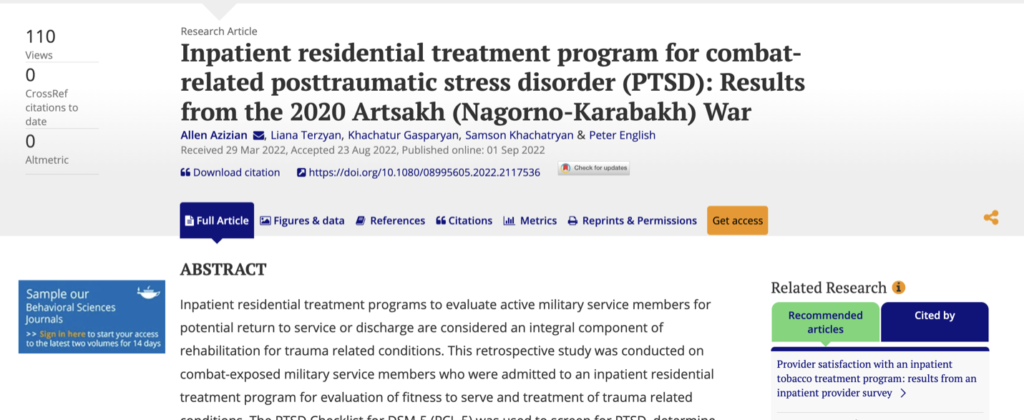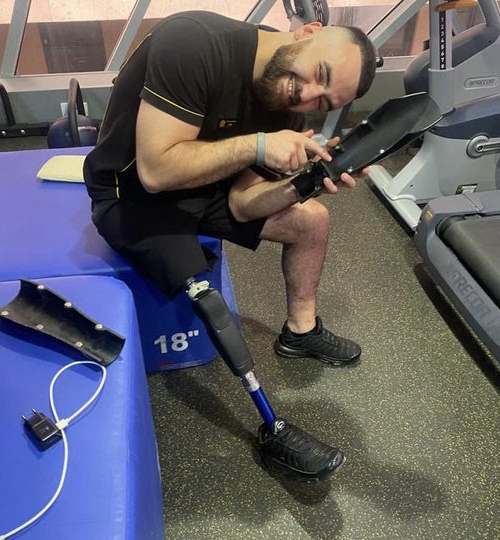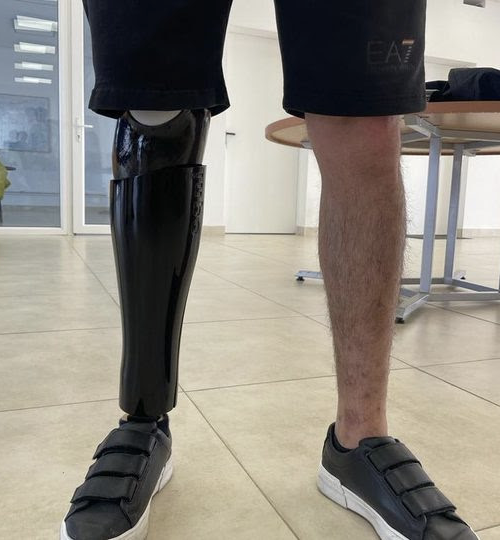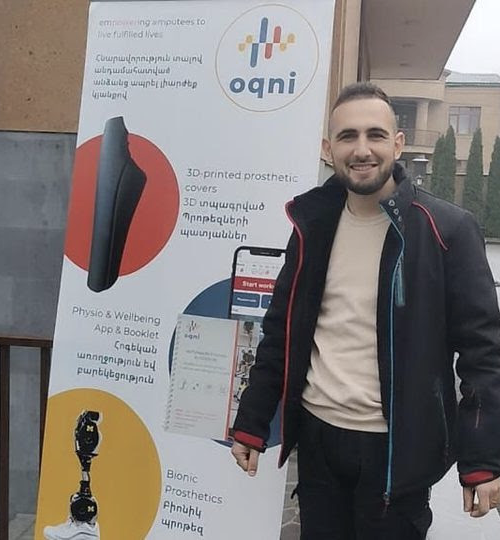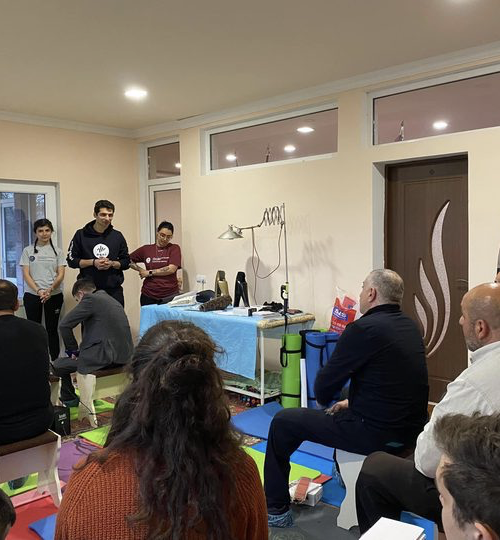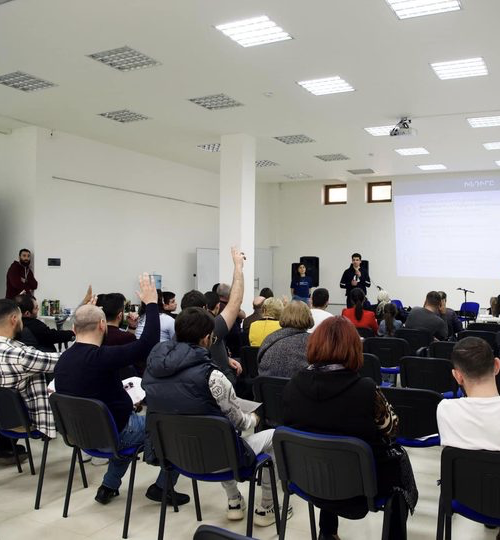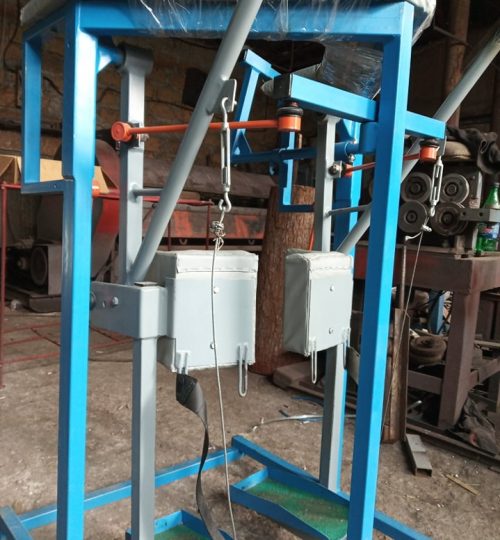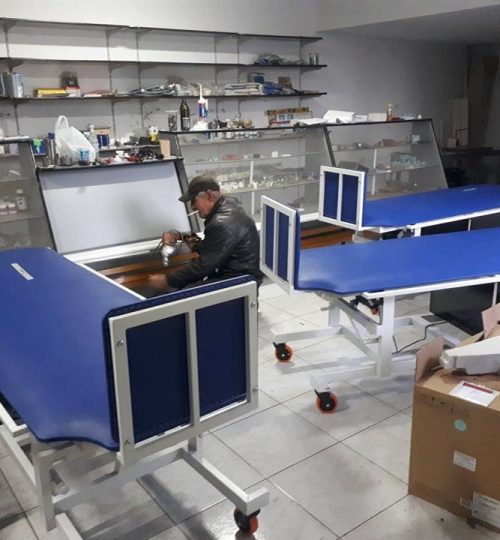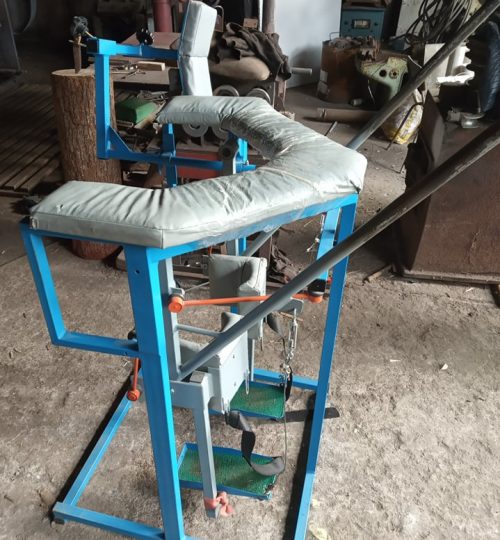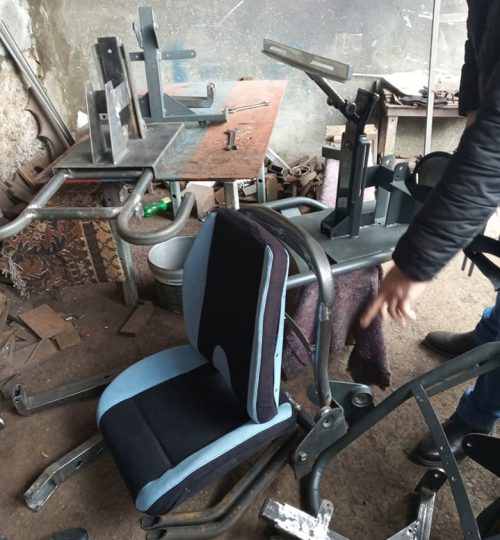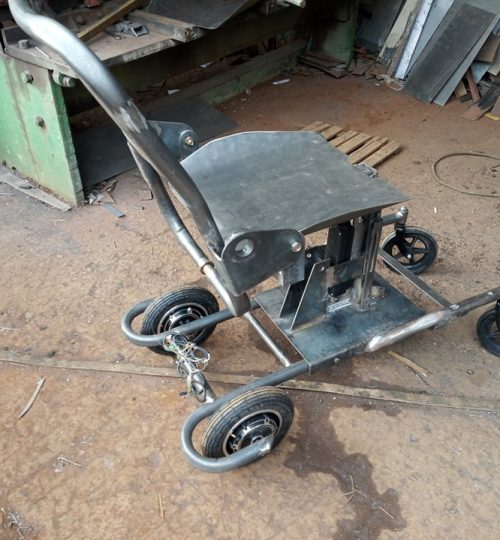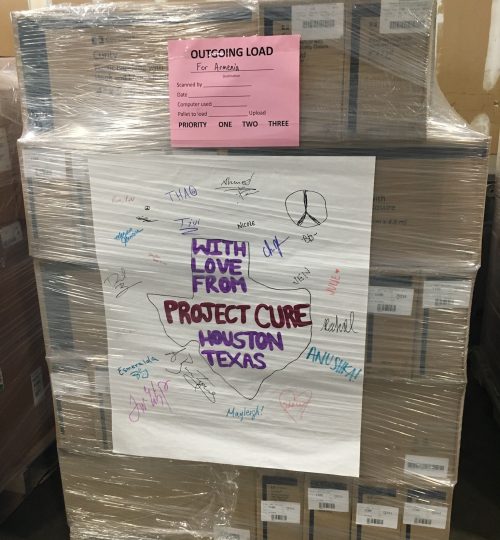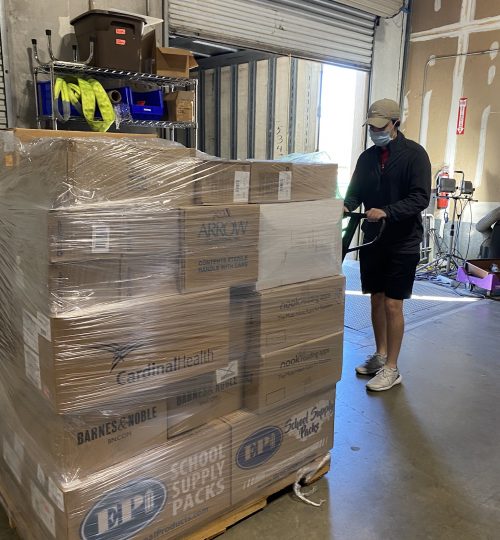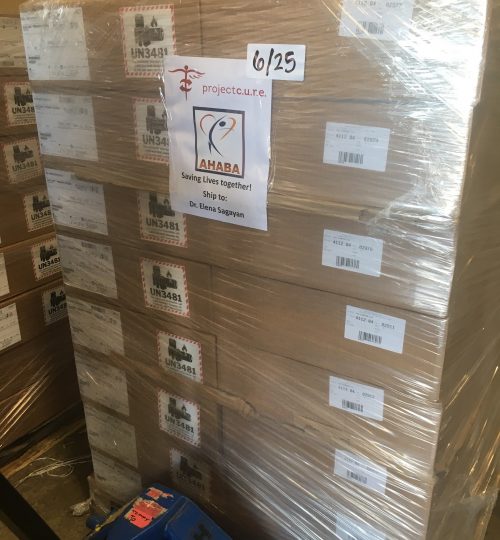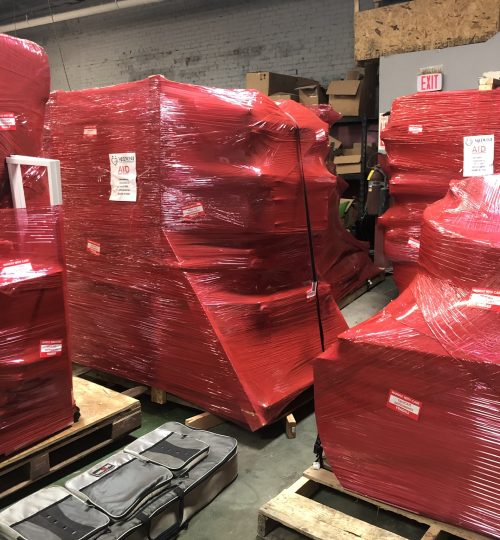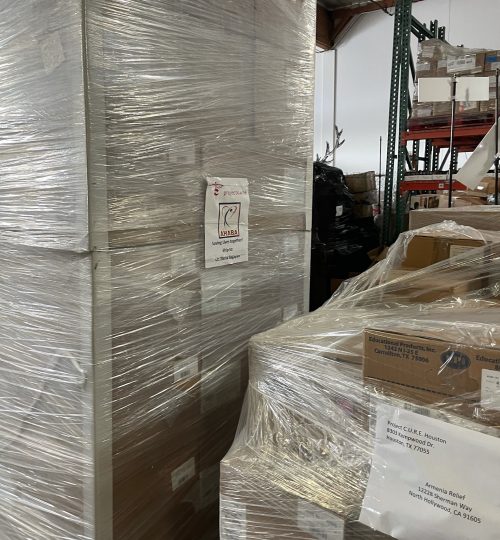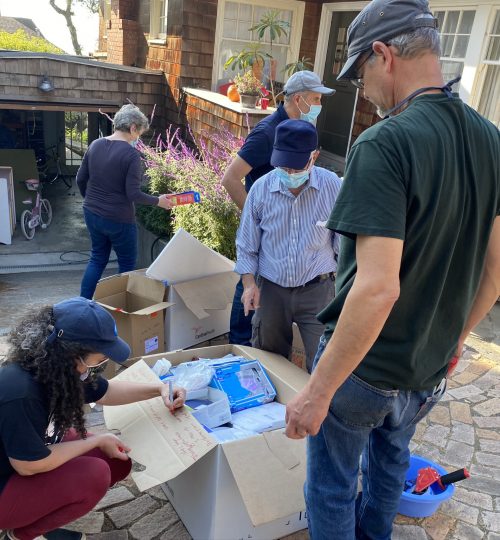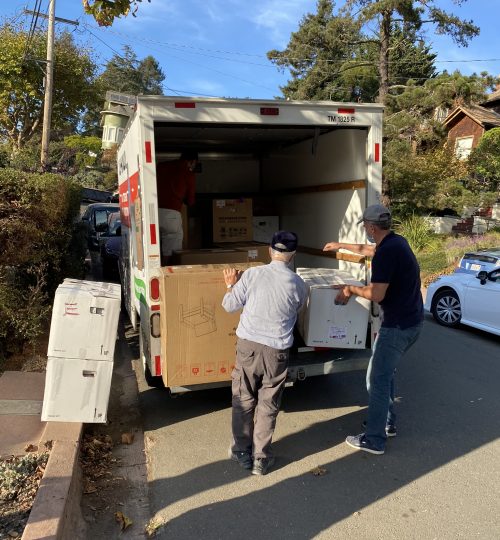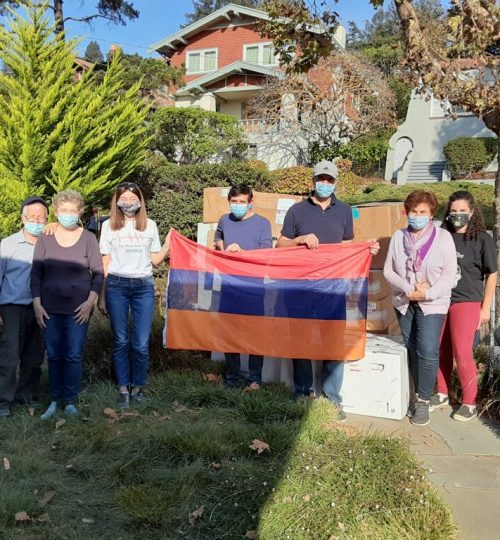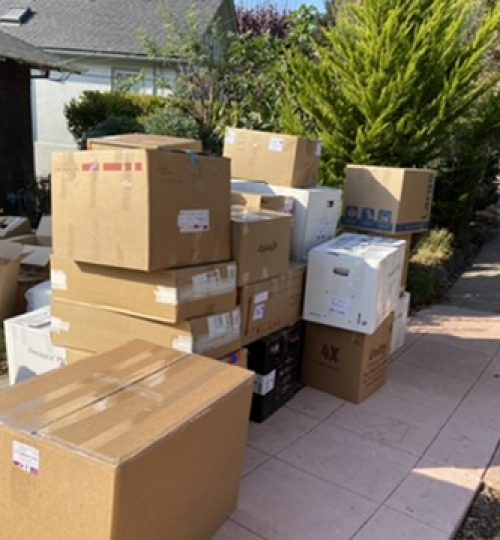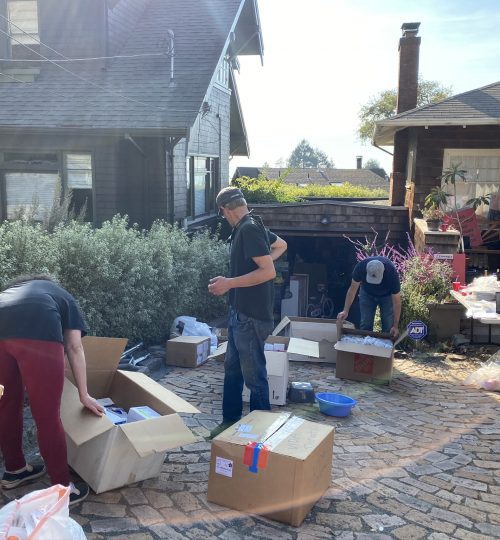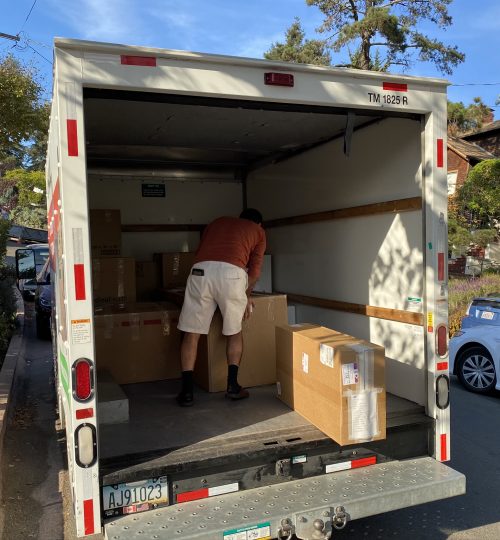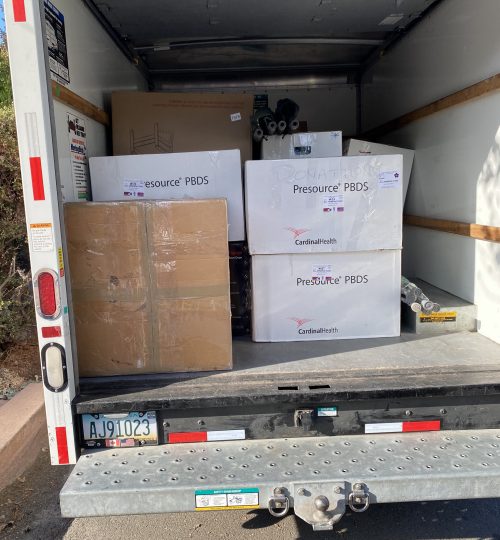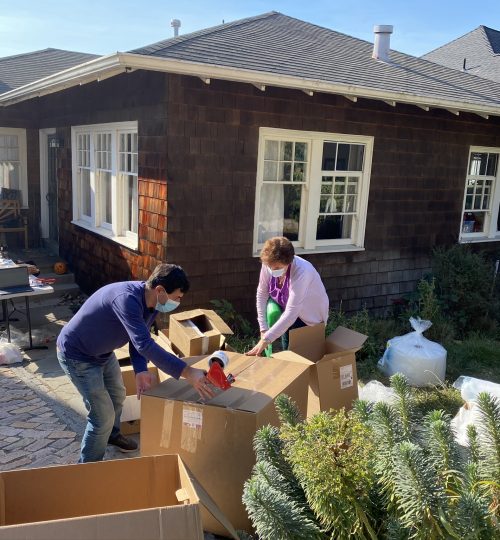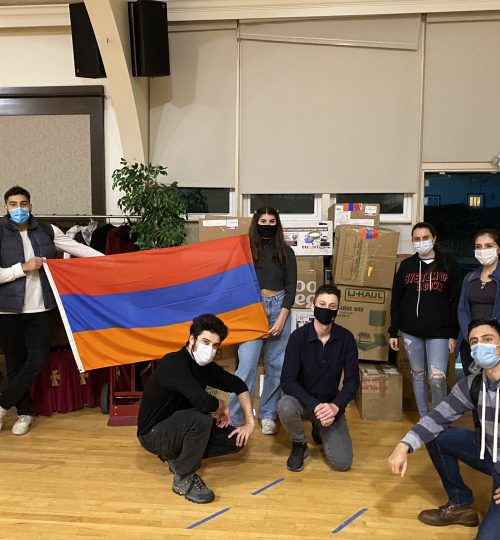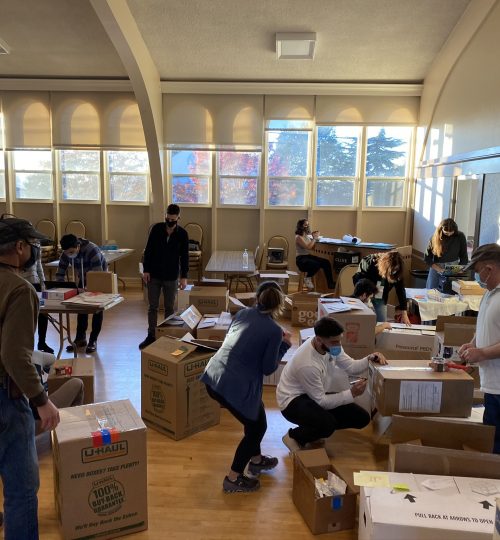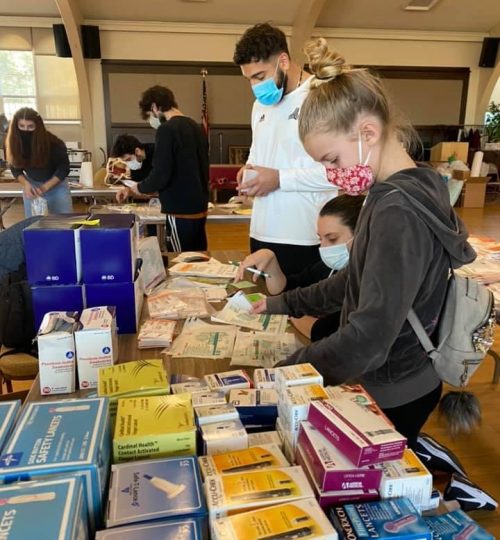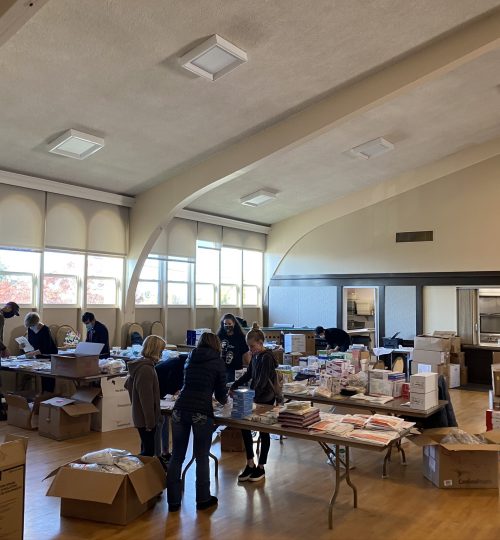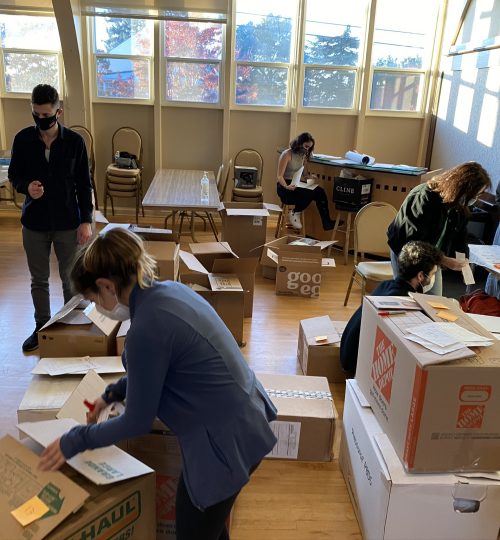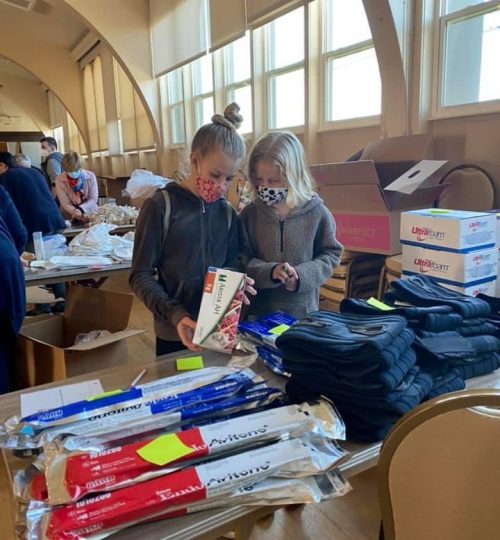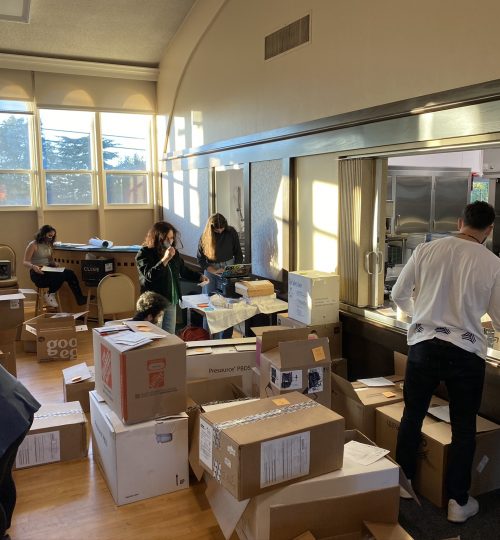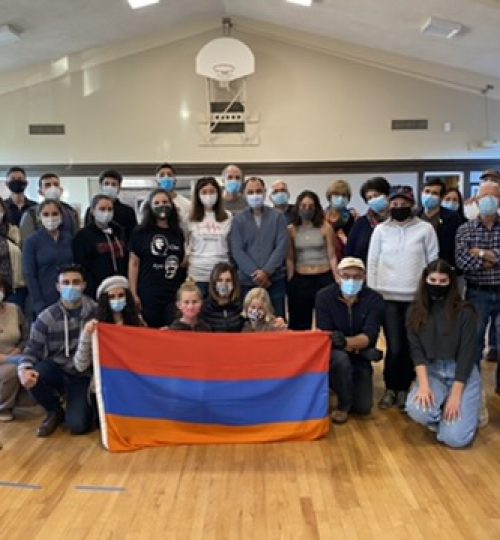Artsakh Relief Efforts
Rehabilitation of Soldiers
Support for Recovery of Amputees of War
Following the 2020 Artsakh (Nagorno-Karabakh) War AHABA provided support to the Armenian non-profit organization OQNI, whose mission is to provide physio and mental health to war veterans through the rebuilding of the bodies and minds of soldiers who lost limbs due to war. AHABA specifically provided both funds and editorial input to a printed booklet, mobile app, and exercise materials that enable an amputee to do physiotherapy and mental health exercises at home. This is important because for most amputees in Armenia, especially those not living in Yerevan, these services are not attainable.
In 2022, Oqni embarked on a two-week trip through the Armenia to meet with amputees and their families and distribute these materials as well as donated all the equipment needed to do physiotherapy at home. In Yerevan, Gyumri, Vanadzor, Tumanyan, Ijevan, Chorotan Village near Berd, Kapan and Goris they onboarded more than one hundred participants into the program and delivered all the equipment needed for at home physiotherapy. Even amputees from the first Artsakh war who may have felt forgotten over the past 30 years were appreciative of the project and the solutions that had been created for them. Oqni’s goal for Summer 2023 is to help one hundred more participants with these services.
Medical Equipment for Rehabilitation of Soldiers in Artsakh
Research Projects
Treating Combat-Related Post Traumatic Stress Disorder Research Study
During the 2020 Artsakh War period, AHABA provided funds and oversight for a clinical study that compared the efficacy of various methods of treating Post Traumatic Stress Syndrome (PTSD) in soldiers from Artsakh and Armenia. The Principal Investigator was Allen Azizian, PhD, California State University, Fresno.
The research questions that the study answered were: 1) Will admission to an inpatient residential treatment program decrease PTSD symptoms among combat exposed military service members? and 2) If admission to an inpatient residential treatment program does decrease symptom severity, which PTSD symptoms will improve the most? You can read the results which were published in this peer-reviewed journal article in Military Psychology.
The second phase of the project is ongoing and involves interviewing service members about their perceptions of the therapy. Included are their preferences about their therapists (e.g., gender, age), the therapeutic methods and the techniques used (e.g., EMDR, CBT). To date 11 service members of the 35-40 expected to be interviewed, are complete. The collected interviews are being analyzed using qualitative and thematic based methods.
AHABA’s contribution to the project was acknowledged in the journal article.
